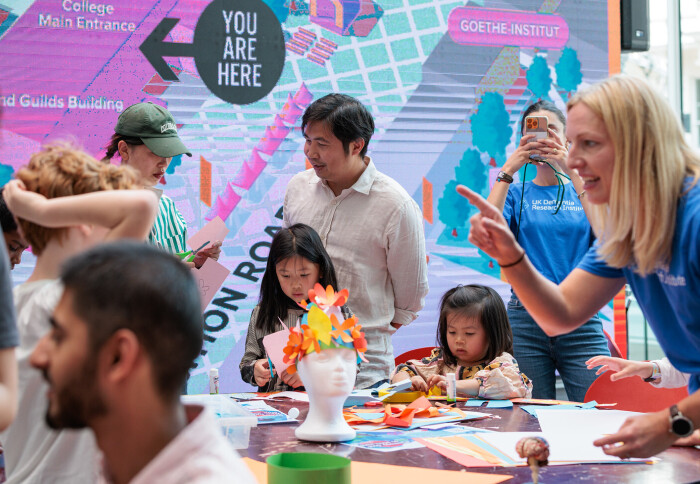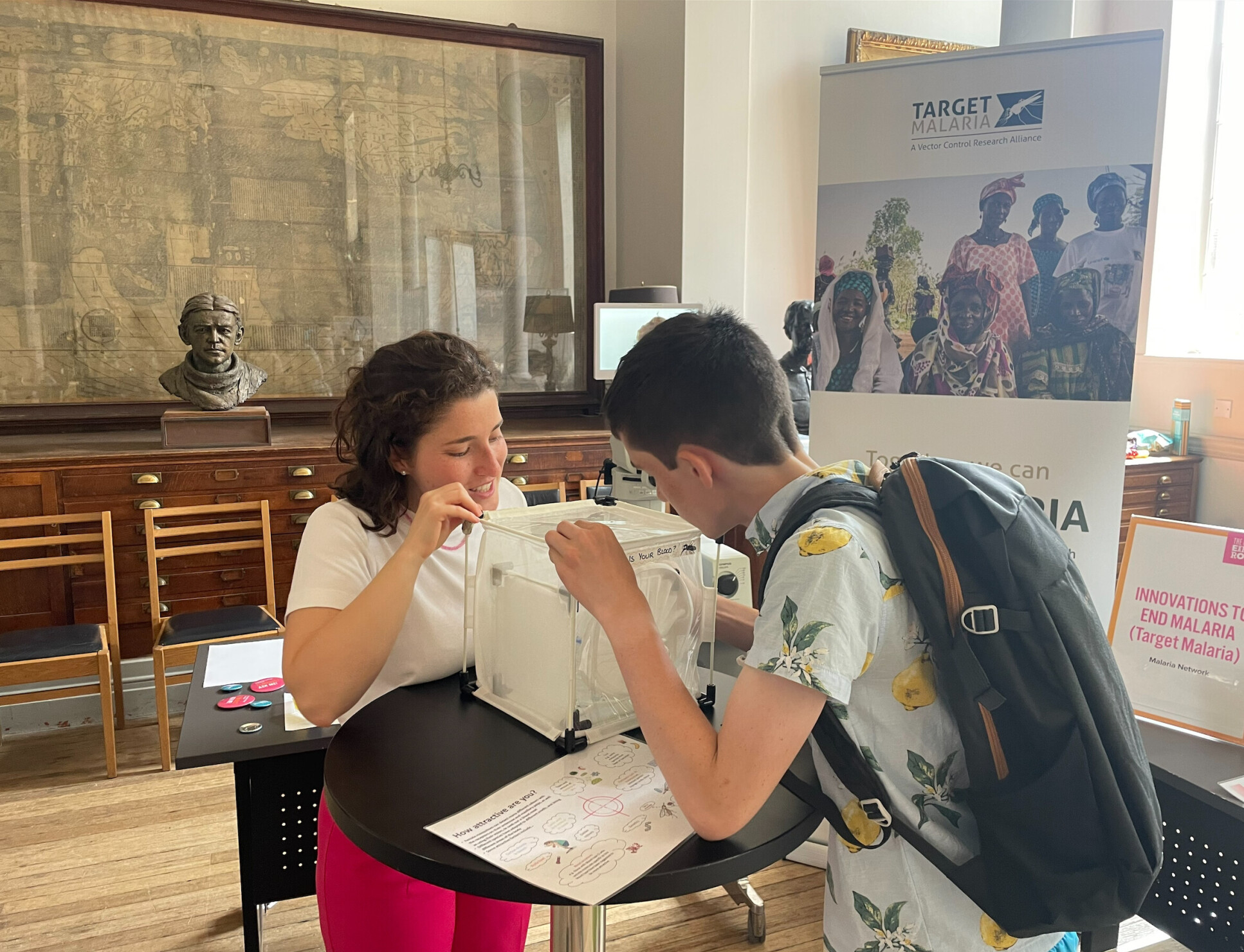Life Sciences bring awe and wonder to Great Exhibition Road Festival
by Emily Govan

Trailblazing members of the life sciences community were out in force at the Great Exhibition Road Festival this weekend.
The Festival is a weekend-long celebration of science and the arts in South Kensington’s Great Exhibition Road, which this year once again delivered an exciting and vibrant programme of workshops, activities, music and much more. As well as Imperial, partners included museums and cultural institutions of Albertopolis, South Kensington’s scientific and cultural hub.
Staff and students from across Life Sciences ran stalls throughout the weekend, inspiring awe and wonder in visitors of all ages – and encouraging children to dream of becoming the scientists of tomorrow!
Wonders of our immunity against cancer
 The Guerra Lab’s demystified the functional implications of natural killer cells and NK cell receptors in cancer. They used posters, games and activities to show children how our immensely powerful immune system is made of a large variety of cells that collaborate with each other to continuously keep us healthy. Not only does it eliminate dangerous pathogens (bacteria, viruses, and fungi) with remarkable precision, but it also combats harmful cells such as cancer cells.
The Guerra Lab’s demystified the functional implications of natural killer cells and NK cell receptors in cancer. They used posters, games and activities to show children how our immensely powerful immune system is made of a large variety of cells that collaborate with each other to continuously keep us healthy. Not only does it eliminate dangerous pathogens (bacteria, viruses, and fungi) with remarkable precision, but it also combats harmful cells such as cancer cells.
Dr Nadia Guerra, Senior Lecturer, said: ‘The Exhibition Road Festival is a unique opportunity to showcase and discuss our research to the public, especially with young children. With our stall, we aim to spark curiosity and foster a love for science and learning’.
Meeting Mozzies
Visitors at this year's Great Exhibition Road Festival learned about Target Malaria's research investigating how genetically modifying mosquitoes could be used as a potential tool to help end malaria. They had the chance to meet the mosquitoes the project is studying (safely kept in a cage!), and learned how gene drive technology works by playing Target Malaria's card game "Mozzie Drive"! Visitors also experienced a mosquito swarm, by listening to a composition under a mosquito net which sonifies gene drive cage trials, demonstrating how gene drive technology could help reduce the number of malaria mosquitoes.
“As a volunteer you meet so many different people throughout the festival and it always feels incredibly rewarding to see the genuine curiosity in the work we do”. Matt Gribble, Insectary Manager at the Crisanti Lab
Matt Gribble, Insectary Manager at the Crisanti Lab, Target Malaria, said: ‘The Great Exhibition Road Festival is always a fantastic opportunity to present the work our lab does in researching novel vector control strategies using CRISPER/Cas9 to create gene systems that we hope could be used to supress populations of the malaria carrying mosquito Anopheles Gambiae in Africa. As a volunteer you meet so many different people throughout the festival and it always feels incredibly rewarding to see the genuine curiosity in the work we do. We have a lot of fun being able to demonstrate the equipment we use to screen transgenic larvae and to see all the reactions visitors have to the cage of adult mosquitos we have at the stand (from delight to abject terror!)’.
Urban Wildlife
The Urban Wildlife Challenge Team, part of the SSCP DTP at the Grantham Institute, ran a stall which included a live moth trap and pitfall trap demonstrations, leaf drawings and bark rubbings, a selection of natural curiosities, and a species ID quiz! Tamara Venn, a Cambodia-based artist, painted a mural based on the varied species found throughout London.

Theodore Brook, PhD student in Silwood Park, said: ‘Our aim is to connect children and their families with nature by highlighting what can be found in local parks and green spaces. We hope this will encourage them to get outside and explore the wild and help fight for nature’s future!’
Article text (excluding photos or graphics) © Imperial College London.
Photos and graphics subject to third party copyright used with permission or © Imperial College London.
Reporter
Emily Govan
Department of Life Sciences